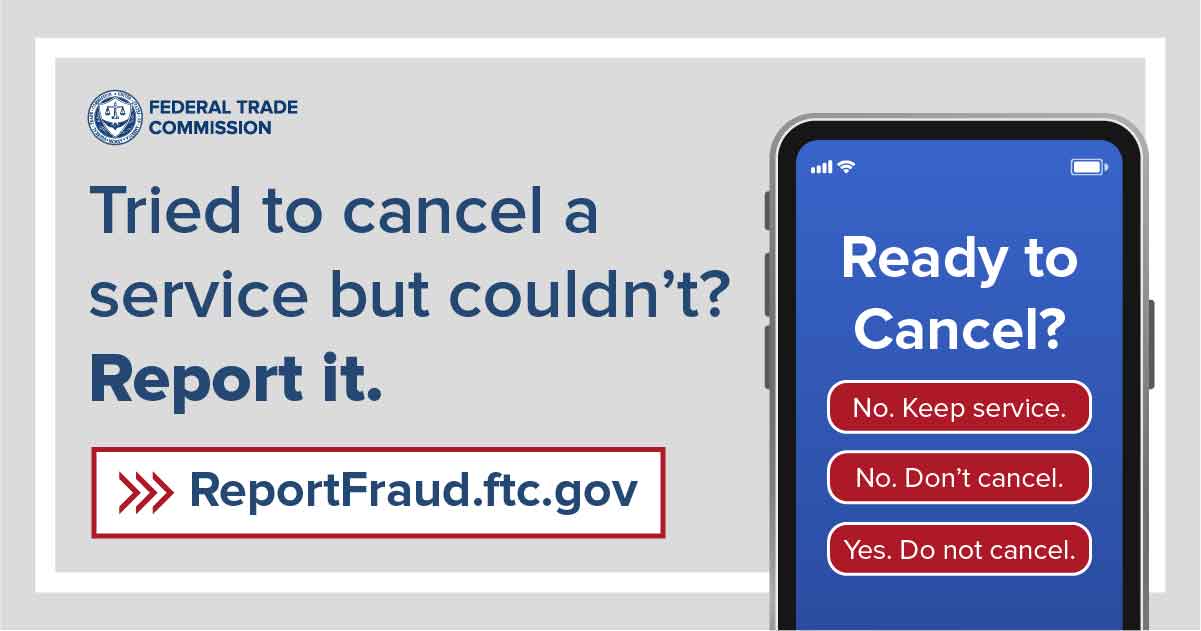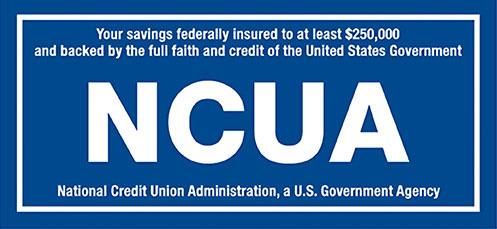November 24, 2025
Consumer Alerts from the Federal Trade Commission
Seemingly urgent security messages could lead to tech support scams
By BCP Staff
You’re online and get a message or pop-up alerting you to a problem with your computer. The message might even say or suggest it’s from Microsoft, Apple, or Geek Squad. Should you click immediately to see what it’s about? No, and here’s why.
Three ways scammers try to steal your money
By Alvaro Puig
We recently shared advice to help you safeguard the personal information in your accounts, on your computer, and on your phone to protect it from identity theft. But scammers aren’t just after your data. They want your hard-earned cash, too. Here are some common scams to watch out for.
Email or social media hacked? Here’s what to do
By Alvaro Puig
Hackers target your email and social media accounts to steal your personal information. Like your username and password, bank or credit card account numbers, or Social Security number. If they get it, they use it to commit identity theft, spread malware, or scam other people. So, what are signs that someone hacked your account, and how can you recover a stolen account?
How to recover from identity theft
By: Colleen Tressler September 27, 2024
We get it. You hoped the day would never come when you learned someone used your personal information to open new credit accounts in your name. But it did. So now what? Act fast. It can help reduce the damage identity theft can cause. Here’s how to get started.
Step 1: Call the companies where you know fraud occurred.
- Call the fraud department. Explain that someone stole your identity.
- Ask them to close or freeze the accounts. Then, no one can add new charges unless you agree.
- Change logins, passwords, and PINs for your accounts.
Step 2: Place a fraud alert and get your credit reports — even if you already have a credit freeze in place. (If you haven’t frozen your credit, do that, too.) When you have a fraud alert on your credit report, a business has to verify your identity before it opens a new credit account in your name. A fraud alert lasts one year, but you can renew it.
- Place a free, one-year fraud alert by contacting one of the three credit bureaus. That company must tell the other two.
- Experian.com/help 888-397-3742
- TransUnion.com/credit-help 888-909-8872
- Equifax.com/personal/credit-report-services 800-685-1111
- To get your report, call Annual Credit Report at 877-322-8228, or go to AnnualCreditReport.com. Federal law gives you the right to get a free copy of your credit report every 12 months from each of the three nationwide credit bureaus. The three bureaus also let you check your credit report once a week for free at AnnualCreditReport.com. Review your reports. Look for accounts or transactions you don’t recognize.
Step 3: Report identity theft to the FTC. You’ll get a free personal recovery plan with next steps.
- To report in English, go to IdentityTheft.gov
- To report in Spanish, go to RobodeIdentidad.gov
- If you’re more comfortable reporting in another language, call 877-438-4338 and press 3 to report in your preferred language. Interpreters are available from 9:00am – 5:00pm ET.
Got a call about fraud activity on your bank account? It could be a scammer.
Never move or transfer your money to “protect it.” Your money is fine where it is, no matter what they say or how urgently they say it. Someone who says you have to move your money to protect it is a scammer. Period.
Never share a verification code. Ever. Banks (Your Credit Union) and retirement and investment companies use these codes for online accounts to prove you’re really you. If you share that code, the scammer can use it to prove they’re you. No caller — especially someone from your bank or investment company’s fraud department — will ever ask for the verification code. That’s always a scam.
Stop and check it out. If you’re worried, call your real bank, broker, or investment advisor. Use the number you find on your statement — never the number the caller gave you, which will take you to the scammer.
And if you think your financial institution or investment fund will protect you, think again. Bank accounts have different (and fewer) protections than credit cards. If you are scammed into moving your money out of your account, you won’t be protected. And you probably won’t get that money back.
If you get a call, text, or message like this, tell your financial institution or fund right away. Especially if you moved money or shared a verification code. Then tell the FTC: ReportFraud.ftc.gov. Now that you know, share this advice — it could help protect your buddies and their life savings.
What to do if your online love interest offers to teach you how to invest your money.
No one thinks their online love interest is going to scam them, but scammers are good at what they do. They establish an emotional connection with you so you’re more likely to believe that they’re an expert in cryptocurrency investing, for example. But that online love interest is a scammer. People have lost tens of thousands ― sometimes millions — of dollars to romance scammers.
- Scammers promise big profits. They might say they’ve made money this way before and that you will too, but it’s a lie. No one can guarantee profits in any investment.
- Scammers say there’s no risk. But all investments have risks, including investments in the crypto markets.
- Scammers say they can help you learn to invest. They’ll say they can teach you investment tricks, but they’re really leading you to a scam investment opportunity. You will lose the money you “invest.”
- Scammers tell you how to send the money. Scammers want your money quickly, so they’ll steer you to gift cards, payment apps like Apple Pay, CashApp, PayPal, and Zelle, money wiring companies, or even cryptocurrency. But only scammers insist you send money this way.
If you think someone you met on social media is a scammer, cut off contact. Tell the social media platform, and then tell the FTC at ReportFraud.ftc.gov.
Tips to ensure the security of your account:
- Never share your username or password with anyone. Passwords are secure and no one at MCECU will ask you for this information.
- Be selective when giving your debit and credit card information out, and never share your PIN number.
- Practice restraint. If something seems too good to be true, it likely is.
- If anyone offers to send you money and asks for money back or asks you to send the money to someone else, it is fraud. The transaction will be returned and will leave you on the hook for the amount.
- Monitor your accounts often and take advantage of our online/mobile alerts. Report any suspicious or unauthorized activity immediately to our Member Service Center at 901-321-1200.
In the Check-Out line buying gift cards? Read on to avoid a scam
By Cristina Miranda
If you’re in the checkout line with a gift card (or several) in your hand, ask yourself: is the gift card you’re buying for a gift? Or is someone on the phone with you as you’re checking out telling you what to do – like buy a gift card to pay for something and give them the numbers? Gift cards are ONLY for gifts. That means if the gift card isn’t for someone’s birthday, anniversary, or for any other gift giving reason, it’s a scam.

Tried to Cancel a Service But Couldn’t? Learn steps to take.
Have you ever been unhappy with a service — like your phone or Internet — and tried to cancel it? But, when you tried, you found it difficult or nearly impossible? Learn about the ways companies illegally trick or trap people who use their services, steps to take, and your rights.
Read more >CONSUMER ALERT
FEDERAL TRADE COMMISSION
If you’re shopping for a used car and feeling rushed to buy a car before you can fully check it out — stop! Some used cars may have flood damage.
After a hurricane or flood, storm-damaged cars are sometimes cleaned up and taken out of state for sale. You may not know a car is damaged until you look at it closely. Here are some steps to take when you shop:
Check for signs and smells of flood damage. Is there mud or sand under the seats or dashboard? Is there rust around the doors? Is the carpet loose, stained, or mismatched? Do you smell mold or decay — or an odor of strong cleaning products — in the car or trunk?
Check for a history of flood damage. The National Insurance Crime Bureau’s (NCIB) free database will show if a car was flood-damaged, stolen but not recovered, or otherwise declared as salvaged — but only if the car was insured when it was damaged.
Get a vehicle history report. Start at vehiclehistory.gov to get free information about a vehicle’s title, most recent odometer reading, and condition. For a fee, you can get other reports with additional information, like accident and repair history. The FTC doesn’t endorse any specific services. Learn more at ftc.gov/usedcars.
Get help from an independent mechanic. A mechanic can inspect the car for water damage that can slowly destroy mechanical and electrical systems and cause rust and corrosion.
Report fraud. If you suspect a dealer is knowingly selling a storm-damaged car or a salvaged vehicle as a good-condition used car, contact the NICB. Also tell the FTC at ReportFraud.ftc.gov and your state attorney general.
Avoiding SSA scams
Scammers stay busy trying to take advantage of people. Some scammers pretend to be from the Social Security Administration (SSA) and try to get your Social Security number or your money.
Here's what to know:
- Do not trust caller ID. Scam calls may show up on caller ID as the Social Security Administration and look like the agency’s real number, but it’s not the SSA calling.
- Your Social Security number is not about to be suspended. And your bank accounts are not about to be seized.
- SSA will never call to threaten your benefits or tell you to wire money, send cash, or put money on gift cards. Anyone who tells you to do those things is a scammer. Every time.
- Talk about it. If you’re getting these calls, chances are your friends and family are too. Please talk with them about it.
- People who know about scams are much less likely to fall for them. So by discussing them you are helping protect people you care for and people in your community.
Are you a Victim of Identity Theft?
Federal Insurance Coverage
The shares in Memphis City Employees Credit Union are insured by the National Credit Union Share Insurance Fund (NCUSIF).

